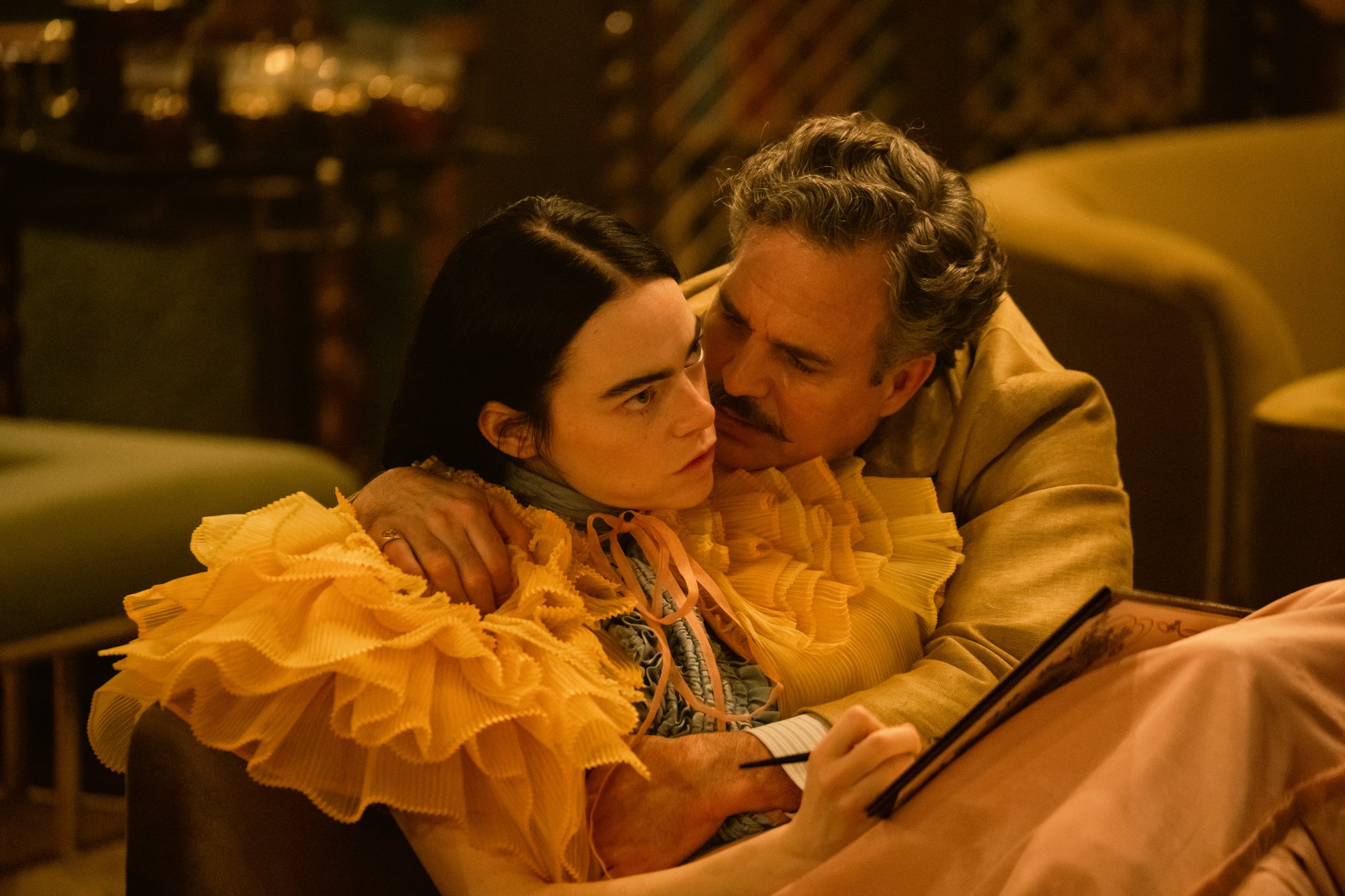Vanity Fair: Emma Stone's 'Poor Things' Delivers Her Most Captivating Performance Yet

Written by Richard Lawson
Yorgos Lanthimos, a renowned Greek director, is not known for sentimentality in his films such as the chilling Dogtooth, the family massacre drama The Killing of a Sacred Deer, or the unique sci-fi romance The Lobster. Therefore, the unusual touch of sweetness in his new film, Poor Things, which was recently screened at the Venice Film Festival, comes as a surprise.
Poor Things, based on the 1992 novel by Alasdair Gray, is a peculiar narrative combining elements of sci-fi and fairytale coming-of-age. The story revolves around a creature akin to Frankenstein's monster, named Bella Baxter (played by Emma Stone). Bella is the ward of an eccentric scientist, Professor Godwin (performed by Willem Dafoe), and is an extraordinary existence in herself. She is essentially a bizarre combination of an infant and mother, having a brain of a baby inside an adult woman's body, originally belonging to another woman.
Known to Bella as just God, Godwin's house is filled with other strange creations apart from Bella. But Bella is his most prized creation, the development of which he views with a mix of pride and protectiveness. Bella's incredibly fast development is noted by one of Godwin’s students, Max (Ramy Youssef), who observes her learning numerous words daily, improving her gait, and developing fascination for the world outside her home.
The film is set around the 1880s in Europe, with travels spanning from London to Lisbon to Paris, portrayed in a theatrical and intentionally phoney aesthetic and costumes, with traces reminiscent of Terry Gilliam’s cinematography. Although visually captivating, the constant focus on style in the movie can be potentially tiring.
Despite some fleeting moments of clichéd indulgence, the movie's political implications are intriguing. Bella's journey, including aspects of sex and male interactions, leads her to a sharper perspective and increased resilience. She takes on the role of philosopher of sex work, questioning the societal norms she faces with blunt directness. Bella's journey is filled with sexual discovery which is portrayed candidly by Lanthimos, with Stone delivering a commendable performance in this demanding role, displaying a seamless switch between comedy and developing sentimentality and maturity.
Stone’s performance is complemented well by her co-stars’. Dafoe continues to ace the portrayal of eccentric characters, whereas Youssef comes off as charming and genuine. Christopher Abbott does justice to the villainous character he enters as late in the movie, and Kathryn Hunter presents an interesting blend of maternal and intimidating as a heavily tattooed Parisian madam. However, Mark Ruffalo, who plays a sexual hustler, goes overboard, adding a touch of farcical humour.
Lanthimos aims to instigate laughter through Poor Things which triumphs above all as a comedy. Although the film is enjoyably clever and embraces its eccentricity to almost an extreme level, its 140-minute duration becomes a tad tiresome towards the end due to repetitive jokes and overly complicated plot developments. Despite the appreciation for the grand narrative dimensions of the film, Poor Things loses some of its energy as Lanthimos tries to piece everything together towards a conclusive ending.
Which isn’t to say that things don’t end nicely. A kindness and a sense of accomplishment animate the film’s closing scenes; we feel the contented tiredness of arriving home after a long time out in the formative wilds. In making a film about growing up (among other things), Lanthimos seems to have matured some too. He’s still a mischievous provocateur daring people to wince in the face of uncomfortable matter, but in Poor Things he finds grace in the profane and the squalid. He shows us a heart to complement all the whirring of his singular brain.




